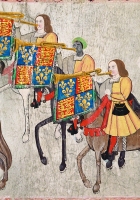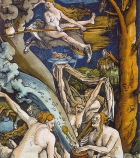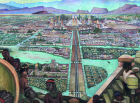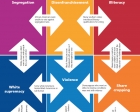Diversity in the past
The materials in this section are all focused on the choices that teachers have to make about the substantive content of their curriculum. The diversity that all students encounter within the past – the range of specific individuals and groups of people about whom they learn – and the ways in which different topics are treated within the curriculum are known to impact on the extent to which young people engage with school history and on the connections that they see between past and present. The resources in this section illustrate different ways in which teachers have increased the diversity of their curriculum – paying more attention, for example, to women other than monarchs in the early modern period; examining the work of Black British civil rights campaigners; or questioning the stereotype of the English ‘Tommy’ in examining who fought for Britain on the Western Front. Teachers will need to develop their own subject knowledge if they are to teach more diverse pasts and many of these resources help to provide some of that new knowledge or show where it can be found.
-

Widening the early modern world to create a more connected KS3 curriculum
ArticleClick to view -

Witchcraft - Using fiction with Year 8s
ArticleClick to view -

Year 7 challenge stereotypes about the Mexica
ArticleClick to view -

Year 7 explore the story of a London street
ArticleClick to view -

Year 7 use oral traditions to make claims about the rise and fall of the Inka empire
ArticleClick to view -

You should be proud about your history. They make you feel ashamed:' Teaching history hurts
ArticleClick to view -

‘But they just sit there’: using objects as material culture with Year 8
ArticleClick to view -

‘Its ultimate pattern was greater than its parts’
ArticleClick to view -

‘They took Ireland away from us and we’ve got to fight to get it back’. Using fictional characters to explore the relationship between historical interpretation and contemporary attitudes
ArticleClick to view -

‘You hear about it for real in school.’ Avoiding, containing and risk-taking in the classroom
ArticleClick to view

